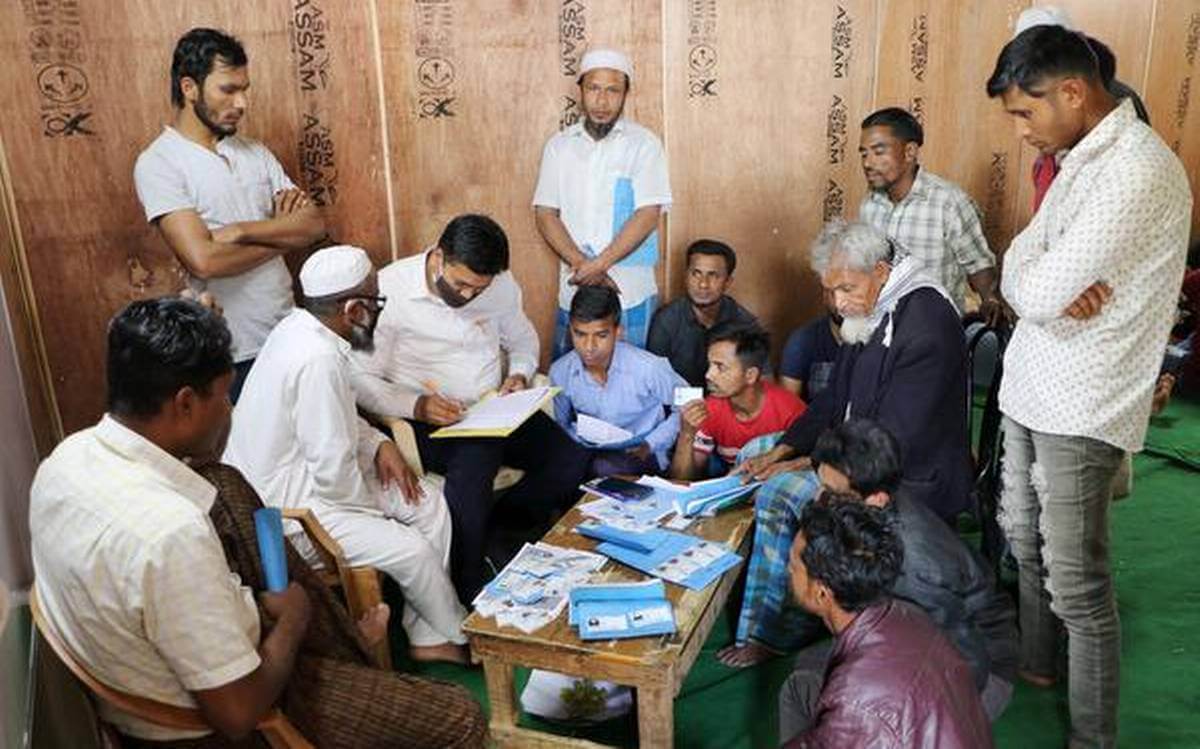On Thursday, the Supreme Court of India issued an order allowing for the deportation of around 170 Rohingya Muslim refugees, who had previously been detained in Jammu and Kashmir, back to Myanmar. This was a judgement passed in response to a petition filed by Mohammad Salimullah, a member of the Rohingya Muslim community, who was urging to court to delay the deportation of the detainees due to the ongoing political unrest in Myanmar following the military coup in February. Salimullah’s lawyer, Prashant Bhushan, had also called upon the court to recognise the threat faced by the community in Myanmar, citing an order by the International Court of Justice, which confirmed the threat of genocide faced by the community in Myanmar.
However, the bench, which was led by Chief Justice Sharad Arvind Bobde, said that while protections such as the right to equality and right to life and liberty are enjoyed by all individuals, the right to settle in India and the right not to be deported could only be extended to its citizens. To support this claim, the court further noted that India was not a signatory of the 1951 Refugee Convention, an international agreement that establishes the duties and responsibilities of states with respect to refugees. Consequently, it added, “possibly [there] is the fear that if they go back to Myanmar, they will be slaughtered. But we cannot control all that.” Furthermore, the court accepted and reiterated the Indian government’s claim that the community’s members were posing a “threat to [the] internal security of the country.” Nevertheless, they reassured the petitioners that the legal procedure would be followed by Indian authorities before their deportation.
Several Rohingya Muslim activists and members of the community condemned the judgement. Mohammad Saleem, a Rohingya Muslim residing in Jammu, said, “we had huge hopes from the Supreme Court … every court treats humans like humans without getting into their ethnicity or race. But in India, from its politicians to the judiciary, they are all treating us worse than animals.” He added that, by passing the abovementioned order, India’s top court had signed a “death warrant” for the community. An activist speaking to Al Jazeera on the condition of anonymity said, “It is a very disappointing order given the situation in our country … in Myanmar, an elected government has been removed by the military which is accused of killing, raping our people.”
The said judgement determines the fate of 170 Rohingya Muslims, who had been gathered and detained at a temporary detention facility at Jammu’s Hira Nagar jail last month. According to two government officials who were quoted by the Hindustan Times, the refugees were found to be living illegally in the northern region of the Indian state of Jammu and Kashmir. Soon after their detention, the process to deport them back to Myanmar had been initiated. At the holding centre, biometric tests were conducted to verify the identities of the refugees. “The drive is part of an exercise to trace foreigners living in Jammu without valid documents… We have started the process of deportation of these refugees,” said one of the two officials. Now, after getting a green light from the Supreme Court, India awaits a confirmation from the government in Myanmar of the nationalities of the detainees, following which they will be deported.
It is believed that mass detentions that have begun in the city of Jammu are part of a larger nationwide crackdown against the Rohingya Muslim community. Currently, around 5,000 refugees are settled in the state. Around 40,000 Rohingya Muslims, a majority of whom are undocumented, live in camps and slums in India, including Jammu, Hyderabad, Nuh, and New Delhi.
The genocide against the Rohingya in Myanmar has been ongoing since the 1970s. Since then, the Muslim community has been largely confined to refugee camps, with little access to education, healthcare, or jobs, and had heavy restrictions placed on their movement. As a result, around one million Rohingya have sought refuge in neighbouring countries like Bangladesh and India. However, for decades now, host countries as well as Myanmar have refused to acknowledge them as citizens and each insists that they are “illegal immigrants” of the other, effectively rendering them stateless. Myanmar’s military, the Tatmadaw, has led an ethnic cleansing campaign that peaked in August 2017, when the military drove the Rohingya out of the Rakhine state by torching almost 300 villages and killing at least 10,000 people. It is thought that the recent coup that pushed the control of the country firmly and fully into the military’s hands will further endanger the lives of the Rohingya in Myanmar, explaining why so many are worried at the prospect of being deported back to the country.
Rohingyas Raise Alarm Over Indian Supreme Court’s Approval of Deportation of Detainees
Several Rohingya Muslim activists have raised concern about the Indian Supreme Court’s decision to approve the deportation of around 170 members of the community, who were detained in Jammu.
April 12, 2021

SOURCE: THE HINDU
